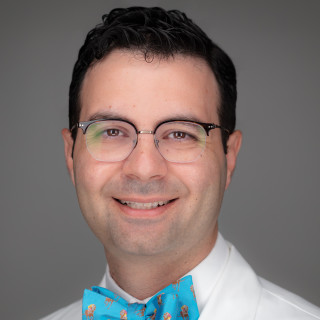The American Society of Hematology meeting is the most prestigious international symposium where updates on the treatment of lymphoma, leukemia and myeloma is presented. Studies related to the advances in benign hematology are presented there too. Every year in December, the practice on many hematological diseases changes because of the data presented.
One of the rare diseases that seem to have less attention in the is T cell lymphoma given the sporadic presentation of the disease and the genomic and phenotypic diversity of its subtypes.
Here I reviewed the most promising posters relating to the use of cellular therapies and allogeneic hematopoietic stem cell transplant (AlloHCT) in T cell lymphoma.
Dr. Javier Briones from Josep Carrera Leukemia Research institute presented abstract #164. Dr. Briones and colleagues were able to produce memory cells-enriched CD30 specific Chimeric Antigen Receptor (CAR) T cells and treat 11 patients using this approach. None of the patients had dose limiting toxicity. Cytokine release syndrome (CRS) was reported in 60% of the patients but was mostly grade 1. All patients responded with a complete response (CR) rate of 50%. Quantitative PCR testing detected CAR T cells in peripheral blood in 6/6 patients at 9 months and 2/4 patients at 12 months.
David Quach, PhD presented his abstract #167 entitled “CD30.CAR-Modified Epstein-Barr Virus-Specific T Cells (CD30.CAR EBVSTs) Provide a Safe and Effective Off-the-Shelf Therapy for Patients with CD30-Positive Lymphoma”. This novel approach focused on overcoming the challenges of allogeneic CAR T cells due to the presence of alloreactive T cells which might react to the host causing graft versus host disease or the host t cell reactivity causing rejection of the infused product. They manufactured allogeneic Epstein Barr Virus specific T cells (EBVSTs) with CD30 specificity. They have treated 14 patients with CD30 expressing lymphoma. The study confirmed the safety with only 2 patients experiencing reversible grade 4 cytopenia. None of the patients experiencing GvHD and Cytokine release syndrome was only grade 1. Despite the excellent overall response (ORR) seen at 69.2%, the qPCR showed disappearance of the CAR T cells from the peripheral blood by 1 week. Further work will be needed to enhance the durability of the response. While no T cell lymphoma patients were enrolled. This approach could potentially treat patients with CD30 positive mature T cell lymphoma.
AFM13 was a first in class CD30/CD16A bispecific that was introduced first to enhance autologous NK cells activity against CD30 expressing malignancies. The single agent results were disappointing, likely due to the reduced effector function of the NK cells. Dr. Rezvani and colleagues complexed cord derived NK cells with AFM13 (AFM13-NK) and showed CAR T cell like activity that overachieved the activity of each of those components individually. The phase I/II (abstract #168) enrolled 30 patients with CD30 expressing tumors with prior Brentuximab Vedotin exposure. The infusion of AFM13-NK was followed by weekly infusion of AFM-13. The protocol was deemed safe with no CRS, ICANs or GvHD reported in all patients. The ORR was 97% with 63% having CR. There continue to be issues with persistence of the infused NK-cells despite some improvement from the reported autologous NK cells studies.
Data on the AlloHCT outcome are lacking in adult T cell leukemia/lymphoma (ATLL). Dr. Bazarbachi (abstract #268) reviewed 22 patients with ATLL. It seemed that the poor prognostic outcome associated with disease phenotypes continue to affect outcome following stem cell transplant. Acute subtype ATLL had worse PFS, and OS compared to the lymphoid subtype. Receiving allogeneic hematopoietic stem cell transplant was associated with improved survival on multivariate analysis. However, achieving a deep remission to qualify for a transplant continues to be challenging with the currently available frontline therapies. This was confirmed in another mature T cell lymphoma cohort from Memorial Sloan Kettering in the abstract presented by Dr. Stuver (abstract #1593) which included 41 patients post allogeneic stem cell transplant. Overall survival for those patients treated with AlloHCT was 63% at 5 years compared to 17% in the non-transplanted cohort.
While we have seen some practice changing studies in other benign and malignant hematological diseases during the last ASH, we still look forward to seeing more updates on this rare and difficult diagnosis.
Dr. Saeed has received grants from SecuraBio. BMS and consulting fees or honorarium from Epizyme, Ipsen, Morphosys, Novartis, Seagen, and Acrotech.
Image by Denis Novikov / GettyImages







